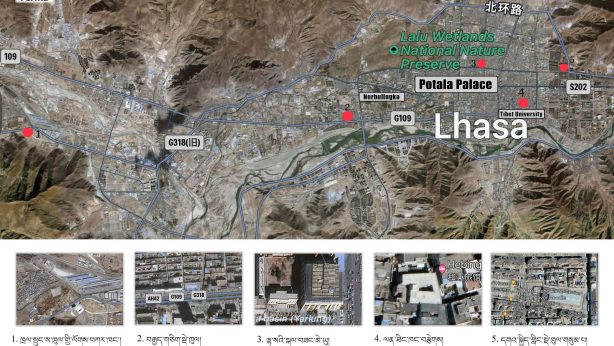Chinese authorities crushing freedom of expression in the name of internet security

Chinese authorities in Tibet Autonomous Region (TAR) issued a notice announcing cash prizes upto 300,000 yuan (approx. USD 44,000) in return for reporting illegal online contents as part of its “social supervision strategy to mobilise the general public to effectively prevent and combat illegal and criminal online contents.”
The TAR Internet Information Office, TAR Public Security Department and TAR Communications Administration issued the notice on 28 February this year. The measures incentivising information on became effective from the day of the announcement. Citing various domestic Chinese laws and regulations including the Constitution, Criminal Law, Public Security Administration Punishment Law, Anti-Terrorism Law, Cyber Security Law, and the Decision of the Standing Committee of the National People’s Congress on Safeguarding Internet Security, the TAR authorities said the incentive measures contained in the notice will be implemented in conjunction with the “actual situation in TAR.”
The notice bans the use of network communication tools ‘to collect, produce, download, store, publish, disseminate, and publicise malicious attacks against the Chinese Communist Party and the Chinese government, the socialist system, the regional ethnic autonomy system, and the party and the government’s policy of managing TAR.” It further bans the “fabrication or deliberate dissemination of information that damages the image of the country, seriously jeopardises the interests of the country, and distorts the history of the party, the nation and the army.”
Further, the notice criminalises information that contains “subverting state power, overthrowing the socialist system, and splitting the country.”
According to the notice, the ‘network communication tools’ include but are not limited to, computers, mobile phones, instant messaging, videophones, wearable network devices, etc. And the online content that are monitored include but are not limited to words, pictures, audio and video, signs, personal information, cartoons, etc.
Using online banking and payment methods including electronic cheques and credit cards as well as Alipay and WeChat to send donations to organisations and personnels related to “ethnic separatist forces, religious extremist forces, violent terrorist forces” is criminalised.
The notice bans “illegal sharing of information about the country’s political, economic, social, military, cultural, religious and other state secrets or intelligence information with overseas organisations, institutions and individuals.” Other banned information includes “provoking and creating ethnic conflicts”, “inciting ethnic hatred and discrimination”, “provoking and inciting hostility, confrontation, and conflict between various religious beliefs and religious ideologies.”
Netizens using network communication tools to “organise or form illegal organisations in the name of ‘public welfare’, ‘environmental protection’, ‘education’, ‘medical’ and ‘poverty alleviation’ in order to distort and attack party and government policies” will face severe consequences. Similarly the notice bans browsing, disseminating, downloading, and storing information published by organisations and individuals related to “domestic and foreign national separatist forces, religious extremist forces, and violent terrorist organisations.”
Generally online activities and other modes of communication such as phone remain highly restricted in Tibet. Surveillance and censorship of online contents are routine practices employed Chinese authorities to suppress dissent and criticism of government policies. But this latest notification is significant in the context of the ongoing nationwide campaign to crush ‘black and evil forces’ and the already shrinking space for freedom of expression, thought and information.
Chinese authorities put a huge emphasis on these crimes as they deem them a threat to the stability of the Chinese nation. Many of the criminal activities listed in the January 2018 TAR police notice on eliminating vaguely defined ‘organised crimes had also been mentioned in the current notice, which shows not just the interlinkages between these two seemingly separate measures.
In 2018, TAR Public Security Bureau was offering rewards of up to 100,000 yuan (US $ 15,600), in contrast to the whopping 300,000 yuan that the current notice is offering, showing that the CCP attaches a great deal of importance to the knowledge of alleged illegal activities. Additionally, the current notice includes obscure and overly broad crimes such as “Challenging China’s territorial claims over Tibet”, “Participating in separatist activities,” Calling for the ‘middle way’ “,” Advocacy of mother tongue “, “Using religion to interfere in grassroots-level administrative affairs or education” that are similar to the previous 2018 notice. The vaguely defined crimes allow more leeway for Chinese authorities to persecute persons engaging in peaceful dissent and criticism of repressive government policies. In the name of ‘social supervision’ strategy, the Chinese authorities is determined to turn the public into government spies, as the incentives that are offered require the Tibetans to report on each other. This is just one example of the creation of a police state in Tibet.


